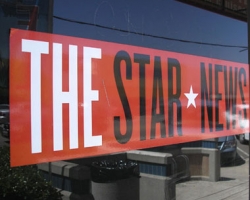The most recent permutation of a long-running dispute between residents and owners of Chula Vista’s mobile home parks has ended in a deadlock.
In a report to the City Council, city staff said a mediation process between the two stakeholder groups, which included seven residents and seven owners, has ended in impasse, and all parties are now searching for a way to move forward.
The failed mediation process was funded by the city. Stacy Kurz, a senior project coordinator, said $15,000 had been allocated for the project, but not all of it was spent.
The dispute centers on a city ordinance that requires park owners to compensate residents if the land on which their homes stand is ever given over to another purpose.
Residents say the compensation scheme currently offered is inadequate, and can result in elderly tenants being forced out of their homes with virtually no compensation.
Owners say they’re in no position to offer better assistance, citing a rent control ordinance that cuts into their revenues and profit margins.
The ordinance currently restricts rental increases to no more than three percent per year, and as the increases are tied to the consumer price index, in many years the increase is far less than that.
Residents have been unwilling to negotiate a change in the rent control policies, and the owners refused to discuss a new compensation scheme.
Steve Molski, a park resident and part of a stakeholder committee that entered the mediation process, said the current scheme leaves residents exposed in the event of a park shutdown.
“You cannot move a coach, especially a double-wide, out of the park for $3,000 … it can cost as much as $10,000 to do that,” said Molski.
For those on a fixed income, such a cost is out of reach, and residents would like to see the city adjust its “closure ordinance” to offer more protection for residents, which currently offers a maximum of $3,000 of compensation.
Although being forced to move is expensive, the situation is made even worse by the fact that some mobile homes cannot be moved at all when a park is closed. Older homes are often prohibited from entering newer parks, so a coach that may be structurally sound and livable where it is, becomes worthless if it ever needs to be relocated.
The city instituted a rent control ordinance in the 1980s that sets restrictions on how much and how often rents can be raised in a given park.
Owner Randall Terry said the controls make it hard to keep a mobile home park running in the black, and points to cities like El Cajon, which lack a rent control ordinance, and often have significantly higher rents that are closer to market rate.
Terry said it was unfair for the city to use mobile home parks, privately run businesses that receive no tax breaks or other government assistance, as de facto providers of low income housing in the city.
“If we’ve said it once, we’ve said it a hundred times; we never asked to be your low income affordable housing provider,” Terry said. He said it was time for the city to do away with rent control, or at least to allow individual spaces to revert to market value as they are vacated.















